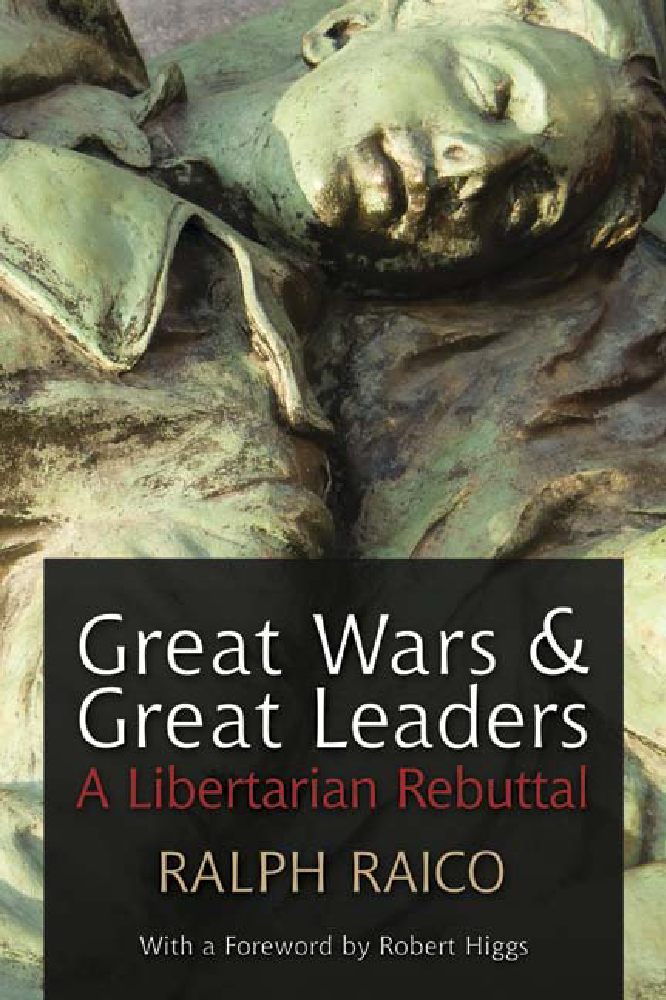Great Wars & Great Leaders Book Summary
Great Wars & Great Leaders by Ralph Raico’s Libertarian Rebuttal is a strong collection of essays questioning the received knowledge on important 20th-century wars and political leaders. Writing from a classical liberal and libertarian perspective, Raico aims to challenge the glorified pictures of war and the so-called “great leaders” driving them. His works offer a revisionist picture of World Wars I and II, the Cold War, and the moral integrity of leaders such as Woodrow Wilson, Franklin D. Roosevelt, Winston Churchill, and Harry Truman.
Setting the tone early, Raico underlines the dreadful consequences of war on not just human life but also on how it expands governmental control and lowers civil liberties. He argues that often the celebration of war and leadership covers more darker reality: wars are infrequently undertaken for good reasons, and leaders regarded as heroes often have an unsettling legacy.
The Prophet Armed Raico attacks President Wilson as the modern interventionist architect. Wilson’s decision to join World War I, according to Raico, prolonged the conflict and had terrible effects, including the Treaty of Versailles and the rise of fascism in Europe. Wilson’s home policies—such as the restriction of civil freedoms and press freedom during war—also come under fire.
Rather than as an unavoidable act of defense, Franklin D. Roosevelt’s entry into World War II is presented as the consequence of planned provocations and backroom manipulation. Raico challenges the moral narrative of the war, arguing that Roosevelt’s conduct toward Germany and Japan unduly stoked conflict. Presented as morally reprehensible events are the firebombing of civilian cities and the imprisonment of Japanese-Americans.
The Libertarian Decision
In his farewell remarks, Raico argues for a non-interventionist foreign policy grounded on classical liberal values. Opposing the idea that war is a means of moral or political advancement, he advocates peace, voluntary cooperation, and free markets as the actual path to world stability and wealth. Prominent Subjects: By nature, destructive and hardly justified. Many times, supposedly “great leaders” adopted immoral or terrible policies. Revisionist history criticizes received narratives and presents a better picture. Advocates of liberty embrace free markets, peace, and non-intervention in world events. Thought Notes: Conclusion Notes Great Wars & Great Leaders asks readers to reconsider established knowledge about geopolitics of the 20th century, employing iconoclasm. With great wit, considerable historical knowledge, and a principled libertarian viewpoint, Raico offers a persuasive alternate narrative to the heroic themes found in mainstream history books.
Winston Churchill: Reality and Dream
Often hailed in the West, one of Raico’s most daring works tackles Winston Churchill. He presents Churchill as a reckless war hawk whose actions—including backing of strategic bombs, the Gallipoli campaign, and appeasement of Stalin—had terrible effects. Raico argues that war propaganda and postwar myth-making have boosted Churchill’s fame. Five: Harry Truman and the Atomic Bomb
Truman faces a lot of criticism for dropping atomic bombs on Hiroshima and Nagasaki. According to Raico, political posturing against the Soviet Union led to dropping more bombs than were militarily needed, and they were not required to finish the war. Examining the moral and strategic consequences, he characterizes the action as one of mass murder.
Foreign policy after the World Wars and the Cold War
Aiming at American foreign policy in the post-war era, Raico argues that the US regularly carried out imperialistic and disruptive actions. Pointing out the contradiction in American ties with autocratic governments, he challenges the military interventionist extension of democracy and presents libertarian arguments against interventionism.
